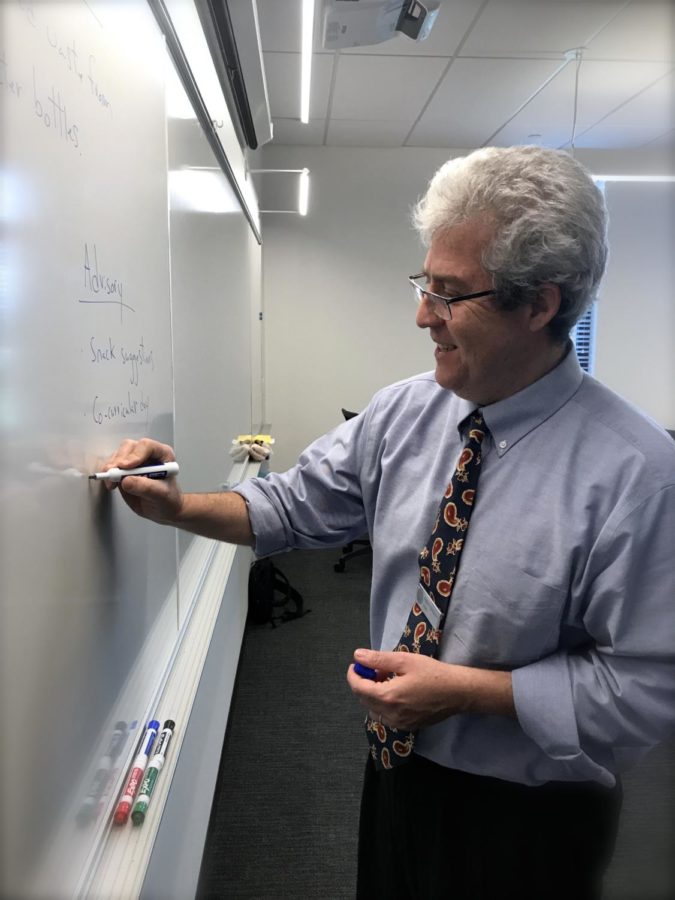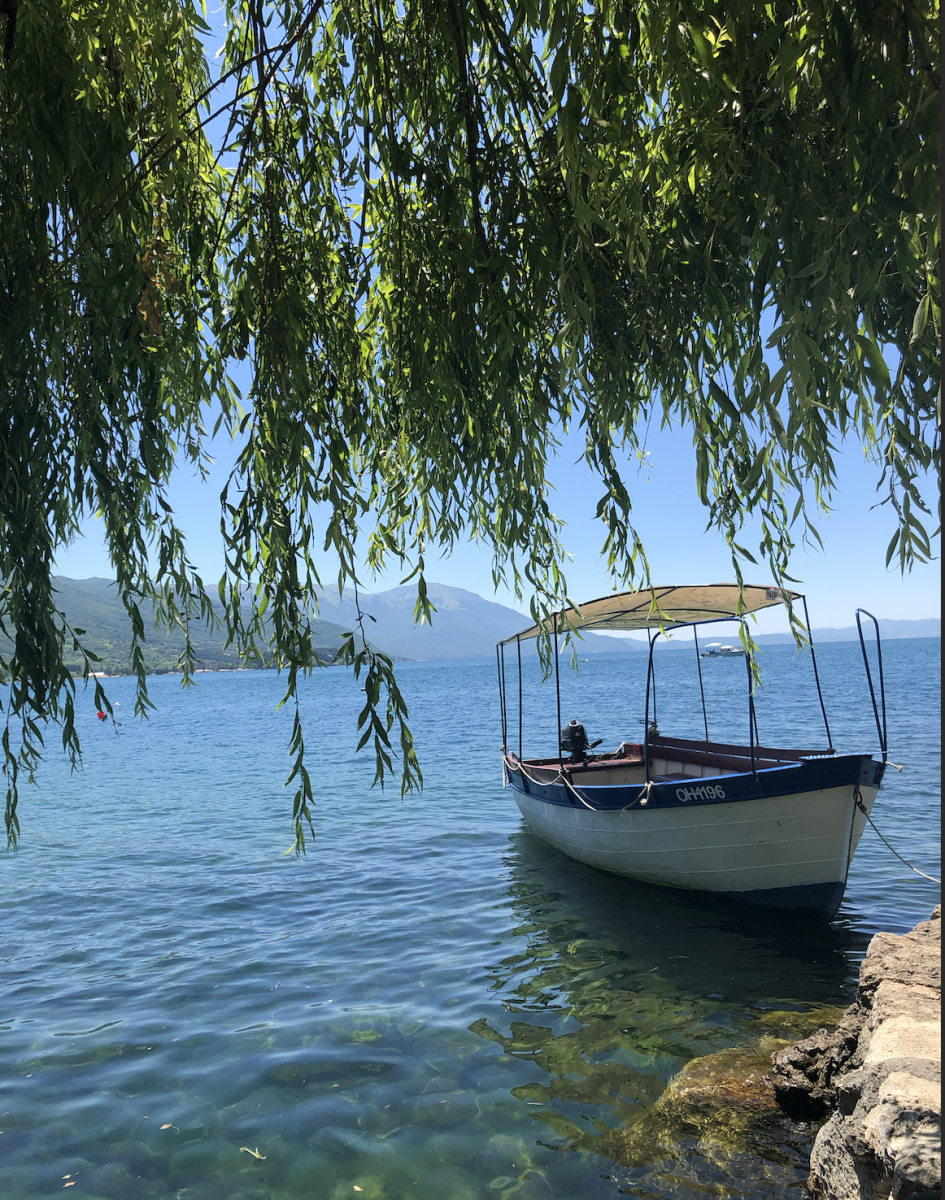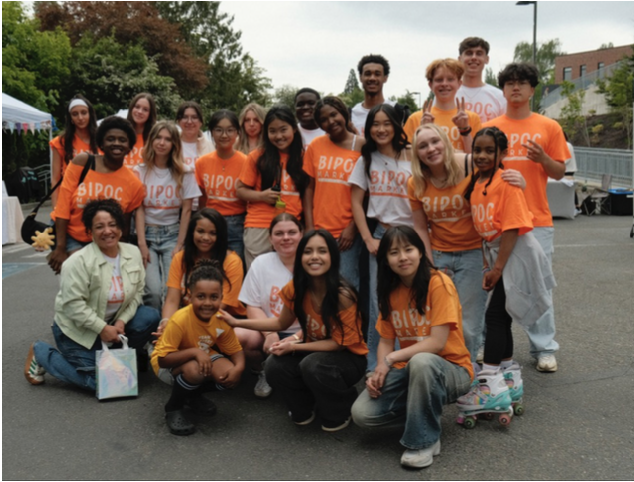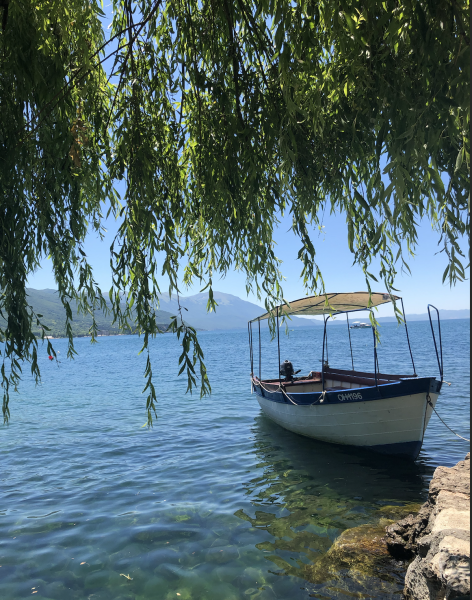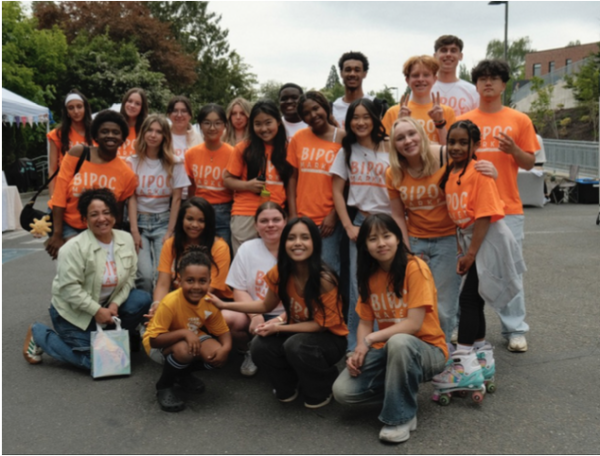New faculty profile: Andrés Eguiguren
September 18, 2019
Andrés Eguiguren has taught in 8 countries, visited at least 50 different countries and traveled to all the earth’s continents except Antarctica. He now teaches World Geography and IB Global Politics in Annie Wright Schools’ Upper School for Boys.
Inkwell: How did you begin your career in education? Give a short personal history.
Eguiguren: I was born in the city of Santiago, Chile, to Chilean parents, and moved with my family to Venezuela at five years old, and then to Texas at the age of 12. After attending the University of Texas at Austin, I got a job in low-income housing outside of Washington DC, but I was unsatisfied, and went on a backpacking trek across Europe for a year to help determine my future career path. Upon returning to Texas, I just happened to see an ad soliciting new teachers, and I earned a teacher training degree at 26. I taught in primary education for a time, but eventually left for China in 1997 to teach at a university. Other countries followed after that, and I went on to earn my master’s degree in Australia, and marry and become the father of two boys. Now, after 23 years, I have finally returned to the States and am very happy to be living in the Pacific Northwest.
Inkwell: What made you choose to teach at Annie Wright?
Eguiguren: I was teaching in Japan before coming to Annie Wright and was looking for a school in the United States. The first thing that attracted me to Annie Wright was the fact that it was an IB continuum school, with the PYP, MYP and DP. That is what I’m most familiar teaching, and I feel very lucky to be able to continue working at an IB curriculum school. The second thing that attracted me was the location of the school, that is, the Northwest. And thirdly, what drew me here was the people. I knew Annie Wright was the place for me after experiencing how personable the people are; even through email correspondence I could tell that they really took interest in me as a person.
Inkwell: What are some of the most memorable places you’ve been?
Eguiguren: I’ve been to around 50 countries as a traveller, but the place I’ve taught at the longest is Tanzania, East Africa, at the International School of Tanganyika. There we had students from 50 different countries, and I feel like they did a very good job of bringing in international mindedness. It was a very interesting time for my family. My children were little, and my wife started a business there importing ceramics from Vietnam, and later started a massage center and a restaurant.
Inkwell: What is something your students don’t know about you?
Eguiguren: When my family moved to the United States I was 12 years old and I didn’t speak a word of English. I try to share that with international students because I know what it’s like if English is your second, third, or even fourth language. In such cases there are some challenges in relation to learning, but, of course, millions of people have done it and continue to today. It’s all about putting in the effort, and I think AWS has some wonderful support systems in place to help those second language learners thrive academically.
Inkwell: How would you characterize your teaching style?
Eguiguren: People often tell me I have a very calm demeanor and soothing voice. I don’t get flustered easily, and I don’t get nervous speaking to large groups of people, such as in the classroom. I would hope that my style is warm and supportive, and makes students feel like they can take risks, as I really do value participation from my students. Also, because I did college counseling for seven years part-time, I am very interested in finding out about what students wish to do in the future, that is, what their dreams and aspirations are, whether that’s college or a career. I think it is very important to get to know your students; you have to have a personal rapport that goes beyond simply grades and academics.


